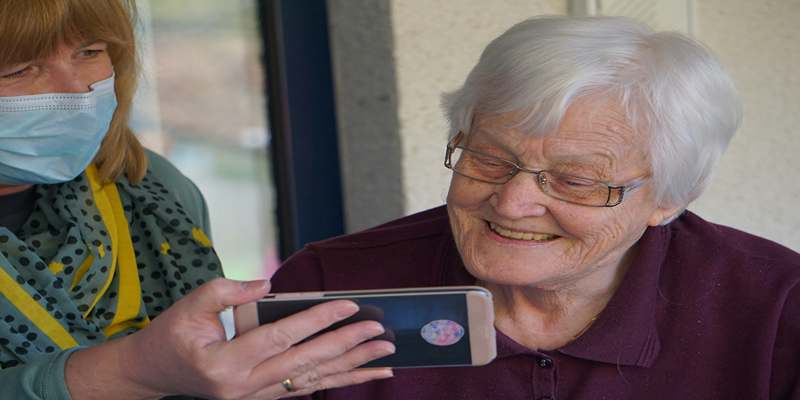Clinical Trial for Cancer Patients: Is It the Right Choice?
Cancer clinical trials are research studies involving a treatment, substance or procedure that is:
(1) being studied to see if it is safe and effective (2) or (3) a more effective alternative to current treatments and (4) not yet available to the public. These trials enable medical professionals to find out which cancer treatment is effective and safe for patients. Cancer patients may participate in clinical trials to receive access to the latest and most innovative treatments that are not readily available to the general public.

Clinial trials are different from standard treatments as they study to see if new therapies will do a better job against cancer. Some trials look at the creation of new combination uses of existing treatments, while others test entirely new clinical drugs for cancer. They can teach you something about the structure and purpose of these studies, and therefore help you decide if participation is right for you or not.
How Clinical Trials Work
Clinical trials follow a rigorous protocol to ensure the safety and effectiveness of new treatments. These trials usually occur in different phases: they usually have four to six stages:
Phase 1: This phase determines the safety and best dosage of a new treatment. A small group of patients participates to help researchers assess potential side effects.
Phase 2: In this phase a larger group of patients receives the treatment to test its effectiveness against specific types of cancer.
Phase3:
This phase compares the new treatment with current standard treatments. Thousands of participants may be involved to analyse how well the treatment works across different patient populations.
Phase 4: After a treatment is approved, further studies are conducted to monitor its long-term effectiveness and any possible side effects as they occur.
Before enrolling in a clinical trial, the patient must understand what stage the study is in and what it aims to accomplish. What are the criteria?
Are Clinical Trials Safe?
The safety of patients is the main priority in any clinical trial. Before the trial begins medical experts, regulatory authorities and ethics committees review the research to ensure it meets strict guidelines. Each patient undergoes constant monitoring throughout the trial to track their response to treatment and any potential side effects.
Clinical trials are also implemented using a step called informed consent which ensures that participants fully understand the trial’s purpose, potential risks and expected benefits. Patients have the right to withdraw from cancer treatment at any stage without impacting their access.
Who Can Participate in a Clinical Trial?
Each clinical trial has eligibility criteria that determine whether a patient qualifies or not. These criteria may include:
1. Type of Cancer: The type and stage of cancer is determined by the type and age of the cancer.
2. Age and overall health condition
3. Previous treatments received
4. Specific genetic markers or biomarkers
If you are considering joining a clinical trial for cancer patients talk to your doctor about how you qualify.
·
Benefits of Participating in a Clinical Trial
Many individuals diagnosed with cancer explore clinical trials as a way to access new treatments that might enhance their outlook. These trials allow participants to receive promising new cancer drugs before they are generally offered. Participants also benefit from professional medical oversight, as skilled oncologists and dedicated research teams carefully track their development. Furthermore, involvement in a trial aids medical progress, assisting researchers in creating improved cancer treatment options for future individuals. Nevertheless, while clinical trials present a glimmer of hope, they do not assure success for everyone. It is crucial to thoughtfully assess the potential gains against the risks before determining whether a trial is the appropriate option.
Potential Risks to Consider
As with any medical intervention, participating in clinical trials entails certain risks that patients should thoroughly evaluate. A primary concern is the potential for unanticipated side effects, as novel treatments might elicit unforeseen reactions not previously documented. Furthermore, the efficacy of experimental therapies is not guaranteed, and some may prove less effective than established cancer treatments. Participation often demands a considerable time investment, typically requiring frequent hospital visits, comprehensive testing, and ongoing follow-ups. Prior to enrolling in a trial, it is crucial to consult with your healthcare provider to carefully assess the possible risks in relation to your current cancer treatment options.
How to Find a Clinical Trial
If you’re interested in joining a clinical trial, your oncologist or treatment team can help identify suitable options. Additionally, various organizations provide online databases where patients can search for trials based on their cancer type and medical history.
The National Cancer Institute (NCI) and major cancer research centers offer searchable clinical trial registries. These resources list active trials and provide details on eligibility requirements, locations, and expected outcomes.

Making the Right Decision for Your Cancer Treatment
The decision to participate in a clinical trial is inherently personal. While these studies provide access to innovative treatments, they also entail certain uncertainties. It is essential for patients to thoroughly discuss their options with healthcare professionals, family, and support networks prior to making a commitment to a trial.
If a clinical trial does not align with one's circumstances, various cancer treatment alternatives are available, such as chemotherapy, radiation therapy, immunotherapy, and targeted therapies. The paramount objective is to identify a treatment plan that resonates with your health aspirations and optimizes the likelihood of recovery.
Choosing the Right Path: Clinical Trials vs. Standard Treatment
Staying informed about clinical trials for cancer patients allows you to explore all possible treatment paths and make empowered decisions about your health. A clinical trial is not just about testing a new drug—it represents an opportunity to access cutting-edge treatments that may not yet be widely available. By understanding the risks, benefits, and requirements of clinical trials, you can compare them with standard cancer treatment options and determine which path aligns best with your medical needs and personal preferences.
Conclusion:
Regardless of whether you select a clinical trial for cancer patients or pursue conventional treatment, the primary objective remains the same: to identify the most effective strategies for combating cancer, enhancing survival rates, and improving your overall quality of life. Actively participating in your treatment decisions empowers you to confidently navigate your cancer journey.









